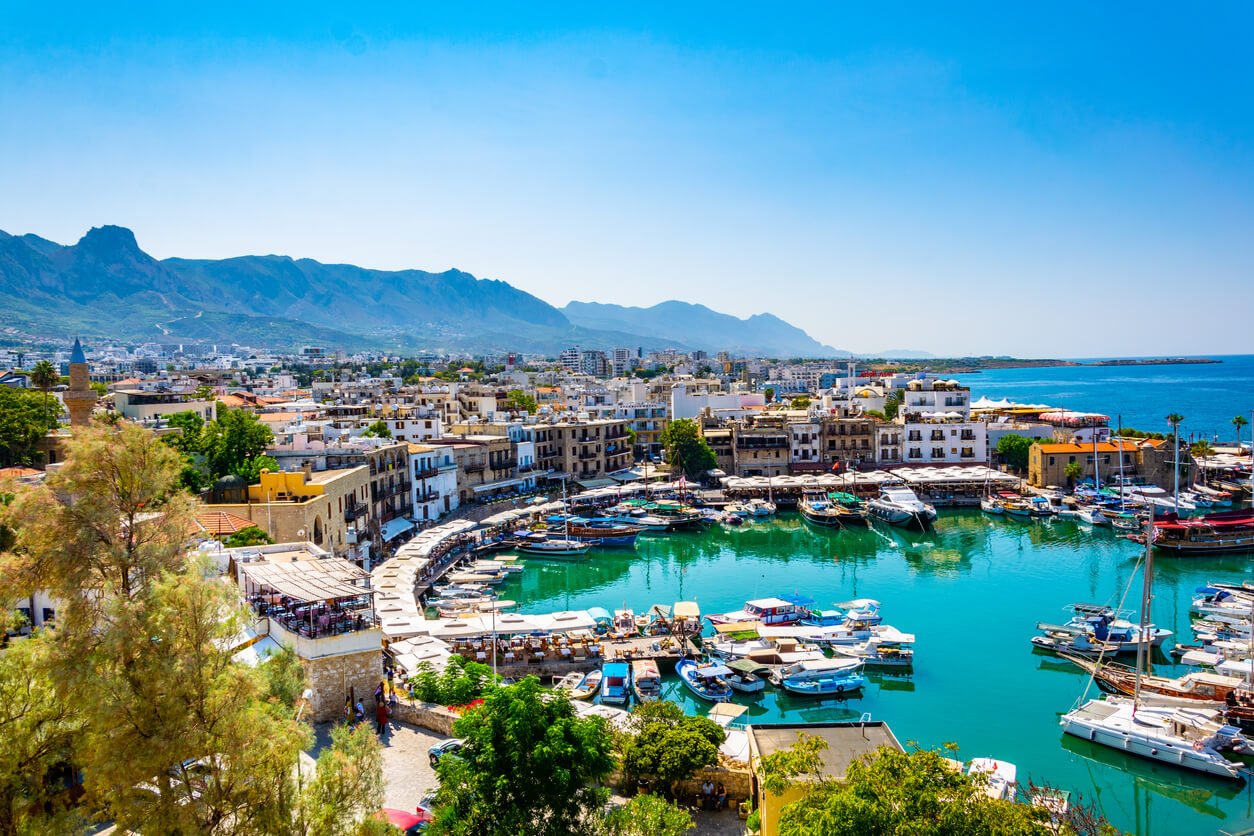
Greece is a country steeped in history, awash with beauty and has a strong sense of culture and community. It is the perfect location if you’re thinking about moving away from the humdrum of daily life and relocating abroad. And if you’re thinking about moving with your family, we’ve put together a quick guide to help you answer some important questions before you take the plunge.
Why move to Greece?
With 6,000 islands, bustling cities, beautiful beaches and endless sunshine, there are plenty of reasons to tempt you if you’re considering moving to Greece.
It’s long been a favourite holiday destination for thousands of tourists seeking sun, sea and a relaxing break – but it could also offer you a better quality of life in the long-run.
With golden sand beaches, stunning natural scenes and almost 3,000 hours of sunshine every year (compared to the UK’s 1,435 hours) there is no better place to set up your family and watch your children thrive.
And if you’re hoping to live a more budget friendly life, then it’s good to know that the cost of living is approximately 15.6% cheaper in Greece than the UK. A family of four’s estimated monthly costs are around £300 less than in the UK.
Property prices in Greece
If you’re considering buying a new Greek home, then it’s a good time to invest. Property prices have been increasing over the last five years and there has been an increase in real estate development, which means there’s more on the market and property will hold its value.
Despite the rising prices, Greek property is still much cheaper than many of its European neighbours. And whether you’re looking for a house or apartment in Athens or a plush villa on one of the islands, there are plenty of affordable options.
If you’re planning to rent a property when you first move, you can expect to pay considerably less than in the UK. In fact, rental prices are around 58.9% cheaper in Greece than the UK, so your monthly outgoings may decrease.
If you want to start searching for your dream Greek home, contact one of our iad Overseas property consultants. They can talk to you about which region may best suit your lifestyle, and what sort of budget you’ll need to find the right property.

Visa requirements
If you’re planning a permanent move, then you’ll have to apply for the right documentation to comply with Greek laws. It’s good to know that residency in Greece is still possible for Brits, despite Brexit.
Like other European countries, you cannot stay in Greece for longer than 90 days without a valid visa. Instead, you will need to apply for a National Visa also known as a D-Type visa. You will need to make an appointment with the Greek embassy in your area. Documents you may need to submit for yourself, and your family will include:
- The correct application form
- A valid passport
- A criminal record check (also known as a DBS certificate)
- A signed medical certificate
- Proof of income
- Proof of accommodation
- Health insurance
If you’re planning to purchase property in Greece, you may be eligible for a Golden Visa. This is a residency-by-investment scheme, which is one of the most affordable in Europe. It gives you the right to live in Greece, visa-free travel, a double taxation treaty and the possibility of family reunification (so your family can join you).
You are currently eligible for a Golden Visa if you spend a minimum of €250,000 on real estate (however this figure is set to rise to €400,000 and costs €800,000 if you buy in Athens, Thessaloniki, Mykonos or Santorini).
Make sure you consult an immigration professional in Greece so that they can advise what visa you need to apply for. It’s worth paying for this service to ensure your relocation meets the correct legal requirements.
Accessing healthcare
Greece has an excellent healthcare system which is ranked 27th in the world. The country’s health service (ESY) is free for all citizens and residents. It offers a combination of public and private healthcare.
EU citizens must have a European Health Insurance Card to access medical care, but as a non-EU citizen it is necessary to have some form of health insurance (this is particularly important if you are in the process of applying for residency or a long-term visa).
As a non-EU citizen with plans to reside permanently in Greece, you can access free or low-cost healthcare if you work in the country and make social security contributions through your tax payments.
Accessing education
If you’re moving to Greece with your children, then it’s important to understand the Greek education system.
Education is compulsory for children aged 4 to 18 years (or 15 if a child opts for vocational training).
From the ages of 4 to 6, children must attend pre-primary school (or Nipiagogeio), from 6 onwards they attend primary school for 6 years, and then secondary education.
Although public school is free for expats, this isn’t always the best option due to the language barrier. In most cases, expats choose to send children to private schools or international schools so that they can be taught in English.
If your children are pre-school age, choosing a Greek public school is a great option as younger children tend to pick up new languages very quickly and they’ll also meet children in the local area.
Childcare in Greece is more affordable than the UK with a month’s preschool costing just €389.91. In the UK, this figure rockets to over €1,200 per month. So you could be making considerable savings in your monthly outgoings.

Working in Greece
If you plan to work in Greece, then you should be aware that the country suffers from high unemployment rates, which means the job market is tricky to navigate.
In addition, the average monthly salary in Greece is estimated at just €923.95 per month, which is much lower than you could earn in your home country.
English-speaking jobs are hard to find and may be concentrated in the tourism industry.
If you can find a job in your home country and work remotely, this might be a better option. You can earn more money, use your skillset and still enjoy your new life abroad. You may also qualify for a digital nomad visa – which also permits family members (spouse, children) to join you.
If you work in Greece, you will need to pay tax. As a non-resident you will only need to pay tax on your earnings in Greece (not any money earned in another country). However, this changes once you become a permanent resident. Make sure you speak to a tax advisor regarding which taxes you will need to pay once you move to Greece.
Culture and community
Obviously moving to a new country means leaving your friends and family behind, so meeting new people is a must.
Whether you’re looking to meet fellow expats or mix in with your Greek neighbours, it may be a comfort to know that Greece was ranked as one of the top ten friendliest countries in 2021, so you’ll be given a warm welcome by all.
Culturally, Greek people consider family as one of the most important things in life. It’s not unusual to find different generations of one family living together or near one another. Greek people are also renowned for their hospitality and generosity – so even if your language skills aren’t great, you’re sure to be welcomed with a smile.
If you want to be near other expats, then the island of Crete is a great choice as it’s one of the most popular destinations for Brits. You can also find thriving expat communities in Athens and Thessaloniki – which are great destinations if you’re looking for work.
If you’re moving to Greece then get online! There are plenty of social media forums and websites dedicated to British expats living in Greece. You can get the inside track on where to go, meet-ups and make new friends if you do the right research.
How iad Overseas can help you find your home in Greece
We have partnerships with local agencies in Greece and our iad Overseas consultant can help you find a property that suits you and your family. Whether you want to live on one of the many islands or choose a city location, we can advise and guide you on the local area.
We appreciate that relocating abroad is a big step, especially if you have a young family. Let us help you start your new adventure today, get in touch with our team now.

- https://www.athens-limo.com/some-facts-about-greece
- https://www.numbeo.com/cost-of-living/country_result.jsp?country=Greece
- https://investropa.com/blogs/news/greece-buy-property
- https://visaguide.world/europe/greece-visa/long-stay-visa-residence-permit/
- https://getgoldenvisa.com/ultimate-guide-to-greece-golden-visa
- https://getgoldenvisa.com/ultimate-guide-to-greece-golden-visa
- https://www.enterprisegreece.gov.gr/newsletters/newsletter-articles/greece-adjusts-golden-visa-program-amid-rising-outlook-for-property-market/
- https://www.internationalinsurance.com/health/systems/greece/
- https://immigrantinvest.com/blog/greece-healthcare-system-en/
- https://eurydice.eacea.ec.europa.eu/national-education-systems/greece/organisation-education-system-and-its-structure
- https://www.globalcitizensolutions.com/greece-digital-nomad-visa/
- https://worldpopulationreview.com/country-rankings/friendliest-countries





